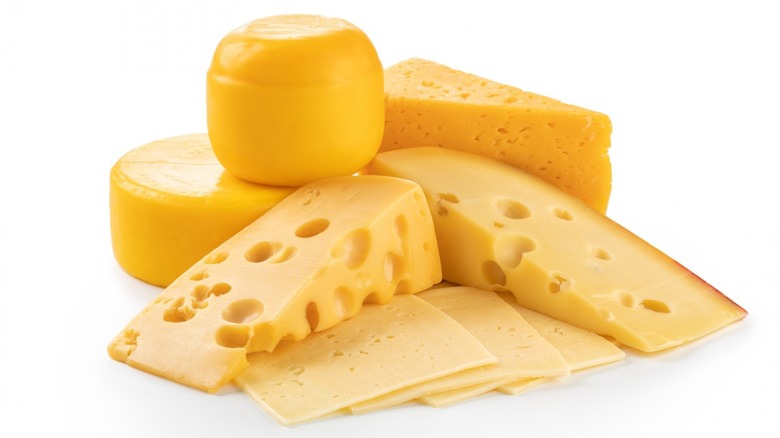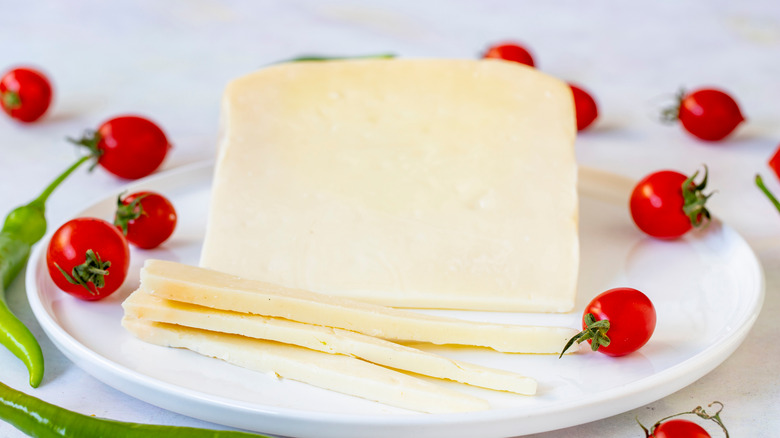Everything We Know About The World's First Carbon-Neutral Cheese
Like many other factors, your choice in foods dictates how much carbon and methane you contribute to the atmosphere, but not every food comes with the same footprint. According to Insider, lamb and beef agriculture and consumption create the highest amount of greenhouse emissions, but chicken, canned tuna, farmed salmon, and even potatoes can also be damaging to the environment.
It may come as a surprise to some eaters, but cheese ranks as the third-worst food when it comes to the production of greenhouse gasses. Luckily, one dairy producer plans to change this with the world's first carbon-neutral cheese. Foodbeast reports that U.K.'s Wyke Farms has now created a revolutionary, carbon-neutral cheddar. The dairy producer worked in tandem with Carbon Trust, a leading organization that tracks carbon footprints, to develop a product that features an official PAS2060 certification, which is an international mark of carbon neutrality.
The process has taken the farm 12 years and started when the dairy producers instituted a 100% green strategy by generating their own electricity and gas from renewable resources. The cheese, labeled as Ivy Reserve, serves as the first carbon-neutral in the world and has the potential to change dairy practices across the world.
A new era for cheese producers
Wyke Farm's Ivy Reserve Cheddar might stand as the first carbon-neutral cheese, but if consumers don't love the taste, the product might not catch on. Foodbeast reports that this new cheese gets some of its flavor from wood and an 18-month aging process that results in a nutty, slightly sweet cheddar. This cheese could make quite an impact. According to Street Insider, Wyke Farm supplies some branches of Costco, in addition to U.K.-based Lidl stores and Southwest ASDA and Tesco stores. The farm also plans to add more carbon-neutral dairy products into their signature line over the course of the year.
In addition to creating a brand-new line of dairy products that eschew carbon emissions, the farm has also worked to support conservation efforts across the world. With any luck, you might spot this revolutionary product next time you hit up a Costco and see if the new product can stack up against cheddars made using traditional practices. The farm may just have what it takes to help lower emissions across the world.

